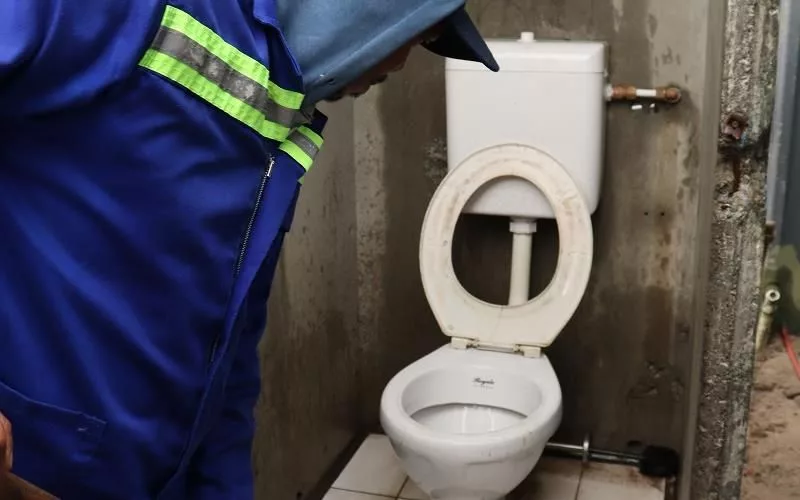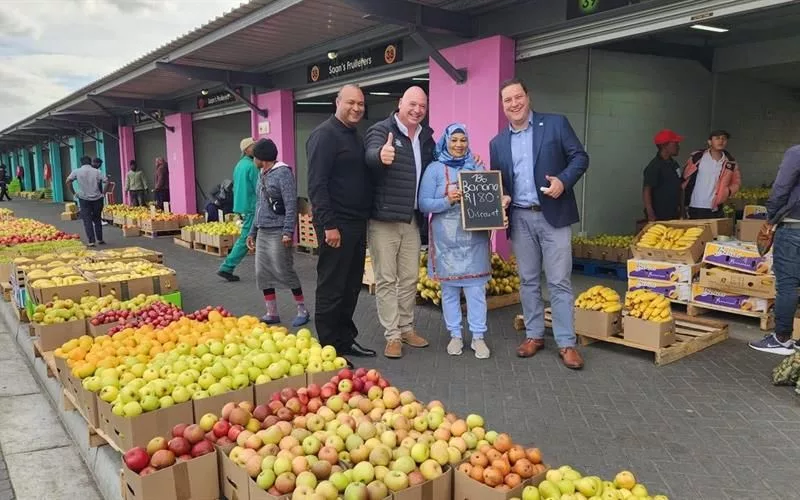Updating your contact information on the Housing Needs Register can unlock a brighter future with a wide array of housing opportunities offered by the City of Cape Town, including programs like Breaking New Ground, Gap to Flisp, and Community Residential Units. Mr. Ismail de Jongh’s story is a prime example of the transformative power of the City’s housing opportunities, and the City invites inquiries and encourages residents to keep their details up-to-date to benefit from these programs. Seize the moment and join forces with the City to build a stronger community, one home at a time.
How can I benefit from the City of Cape Town’s housing opportunities?
By updating your contact information on the Housing Needs Register, you can benefit from the City’s wide array of housing opportunities. These inclusive programs cater to the diverse needs and financial circumstances of all residents, including Breaking New Ground, Gap to Flisp, and Community Residential Units (CRUs). The City invites inquiries and encourages residents to keep their details up-to-date on the Housing Needs Register to unlock their dreams of owning a home.
A New Beginning for Parow Park Resident
As the sun began to illuminate Parow Park on the peaceful morning of May 20, 2024, the sound of jubilant laughter echoed throughout the neighborhood. The source of this joy was none other than Mr. Ismail de Jongh, a 58-year old local inhabitant. He had just received keys to his Community Residential Unit (CRU), a realization of a long-held aspiration.
Only a few weeks earlier, De Jongh was among the Parow Park dwellers at a City roadshow function. There, he updated his contact information on the City’s Housing Needs Register. This seemingly insignificant act was instrumental in paving his path towards a brighter future. It enabled the City officials to offer him a rental opportunity that he wouldn’t have known about otherwise.
De Jongh’s initiative serves as a prime example of the transformative power of the City’s housing opportunities. Councillor Carl Pophaim, the City’s Mayoral Committee Member for Human Settlements, joined De Jongh in his celebration, expressing his joy and affirming, “The sight of a beneficiary matched with an opportunity is truly inspiring.”
Diverse Housing Opportunities for All Residents
The City offers a wide array of housing opportunities, ranging from Breaking New Ground, Gap to Flisp, and CRUs. These inclusive programs cater to the diverse needs and financial circumstances of all residents. The City’s objective is to make occasions like De Jongh’s more frequent, enabling more inhabitants to move into their new homes.
However, Pophaim acknowledges that navigating the application process can be overwhelming. Therefore, he urges potential beneficiaries to visit their local housing office to gather detailed information about the available options and the application procedure. He emphasized the significance of maintaining up-to-date contact information on the Housing Needs Register.
The City of Cape Town adheres to a strict national criterion for the housing subsidy application process. Applicants must be at least 18 years old and should not own or have previously owned any property. They should be married or cohabiting with a partner, or they must be single with dependents who can confirm their dependency status. Singles aged 60 or older or those with disabilities also qualify. Applicants must be South African citizens or hold a permanent residence permit and must be legally competent to sign a contract. They must not be recipients of a national government housing subsidy or be married to someone who is.
Reach Out and Unlock Your Future
The City warmly invites inquiries and encourages residents to keep their details up-to-date on the Housing Needs Register to benefit from the array of housing opportunities. They are accessible via phone at 021 444 0333, through their website, or via email at housing.db@capetown.gov.za.
Being handed the keys to a new home is just a few steps away – steps that start with updating your details today. The essence of this transition transcends bricks and mortar; it’s about realizing dreams and shaping futures. As reflected in De Jongh’s story, the City’s housing opportunities are indeed a gateway to a brighter tomorrow. So, seize the moment, just like De Jongh, and allow the City to aid you in unlocking your dreams. Aspire higher, take the leap, and join forces with the City to build a stronger community, one home at a time.
1. How can I benefit from the City of Cape Town’s housing opportunities?
By updating your contact information on the Housing Needs Register, you can benefit from the City’s wide array of housing opportunities, including programs like Breaking New Ground, Gap to Flisp, and Community Residential Units (CRUs).
2. What is the Housing Needs Register?
The Housing Needs Register is a database maintained by the City of Cape Town that residents can register on to be eligible for the City’s housing opportunities.
3. What is a Community Residential Unit (CRU)?
A Community Residential Unit (CRU) is a rental unit provided by the City of Cape Town to residents who qualify for affordable housing.
4. What are the eligibility criteria for the housing subsidy application process?
Applicants must be at least 18 years old, should not own or have previously owned any property, and must be South African citizens or hold a permanent residence permit. They must either be married or cohabiting with a partner, or they must be single with dependents who can confirm their dependency status. Singles aged 60 or older or those with disabilities also qualify. Applicants must be legally competent to sign a contract and must not be recipients of a national government housing subsidy or be married to someone who is.
5. How can I navigate the application process for City of Cape Town’s housing opportunities?
Potential beneficiaries are urged to visit their local housing office to gather detailed information about the available options and the application procedure.
6. How can I contact the City of Cape Town regarding housing opportunities?
The City can be reached via phone at 021 444 0333, through their website, or via email at housing.db@capetown.gov.za.










